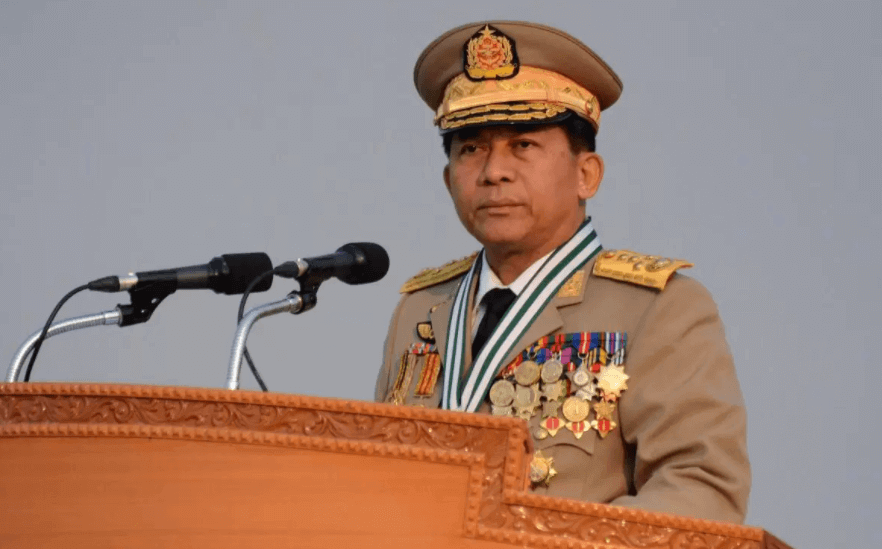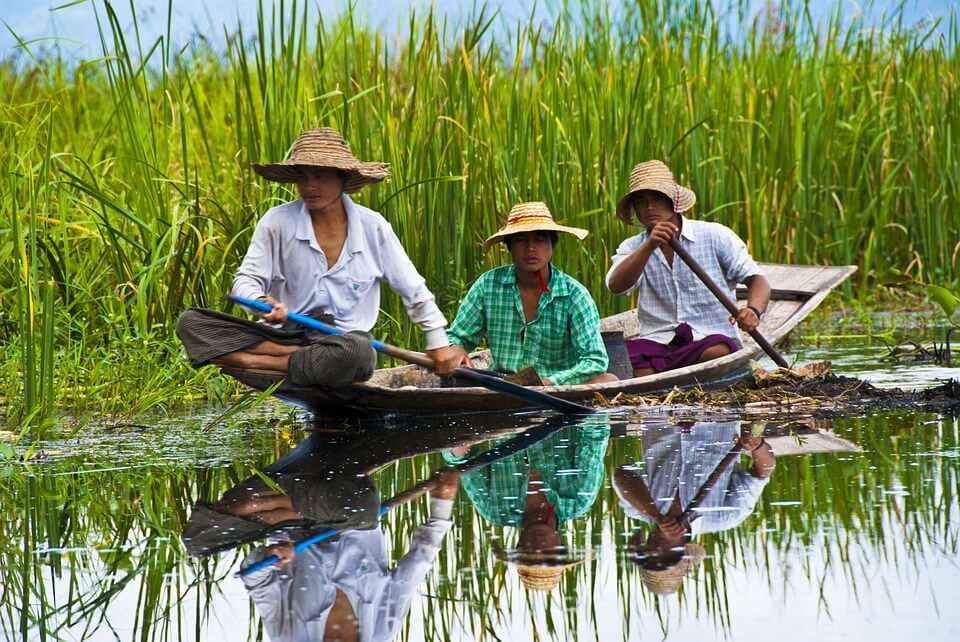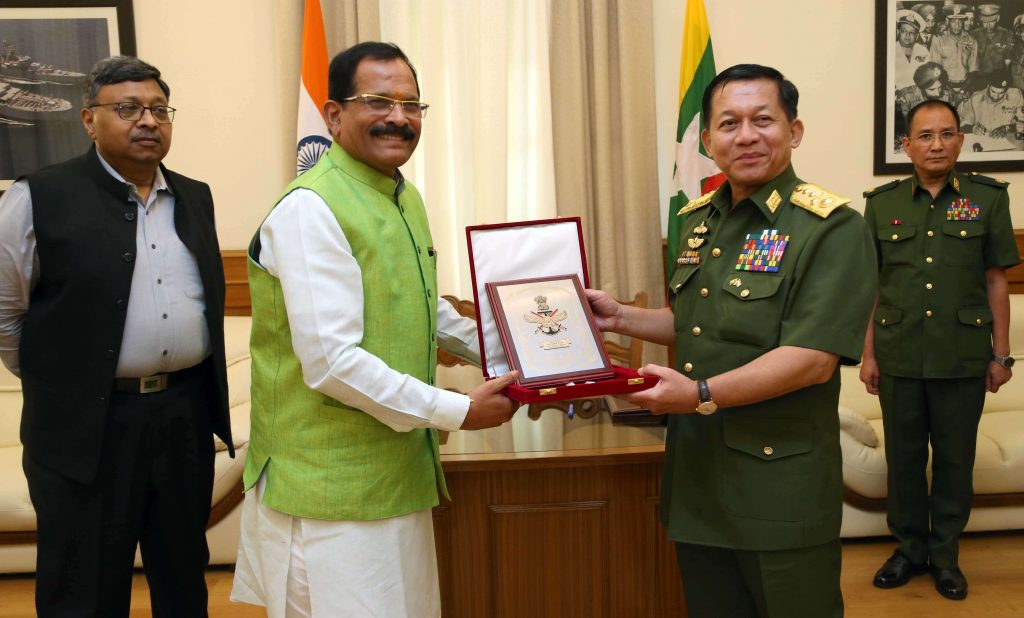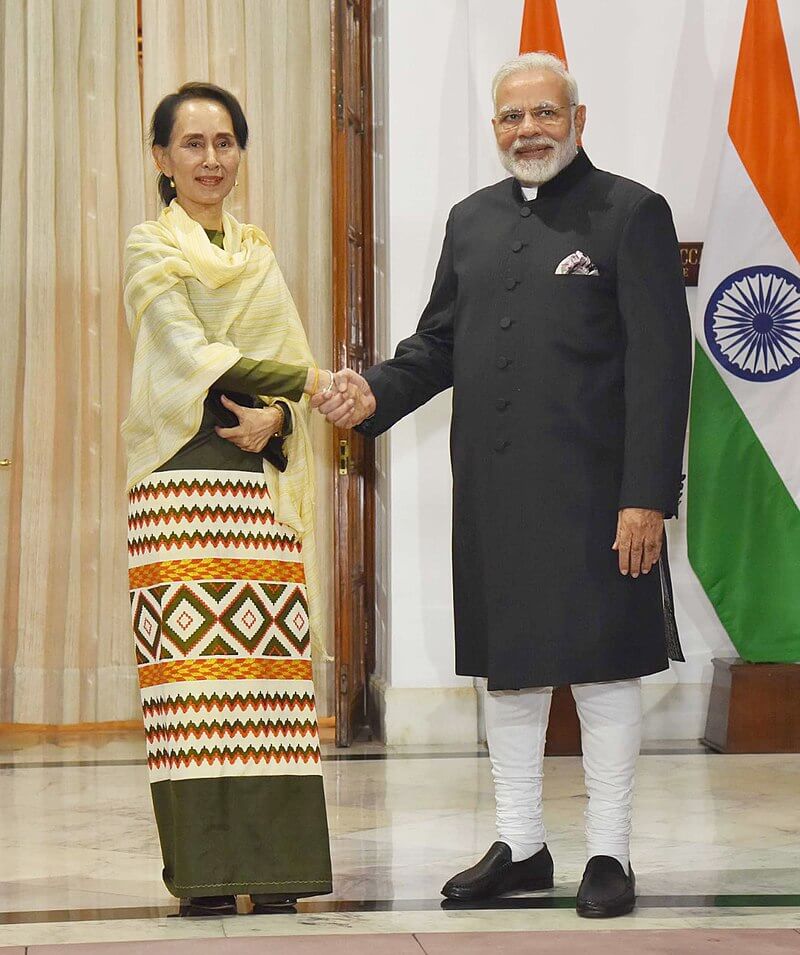
On 01 Feb 2021, the Myanmar military staged a coup that threw the elected civilian government out of power. The military had held the reins of the state since 1962. It was only in the last decade that the military had taken a back seat and allowed the democratically elected government to take charge of the affairs under Aung San Suu Kyi. The military however had 25% reserved seats in both the legislative houses. Suu Kyi wanted to reduce the army’s influence in politics by reducing the number of reserved seats. This led to the coup by the military to oust her party from power, citing that the previous elections had been rigged. They also charged her with corruption and violation of the official secret act to put her behind the bars.
The sudden end of democracy infuriated people from all walks of life sparking massive anti-coup upheavals in the country. Over the last two months, there have been violent protests by the people of Myanmar against the coup by the military. The pro-democratic protests in the country are being silenced with brute force by Myanmar’s security forces leading to almost 550 deaths by fire. The political parties and civil society have been crippled. Yet the ongoing peaceful protests in Myanmar are spontaneous and powerful, joined by people from all walks of life. Some government officials have also joined the civil disobedience. It is not clear whether the protests will bring back democracy or the military rule will continue. Some people have fled their country to escape the military violence and taken refuge in the neighbouring states of India like Mizoram, Manipur and Nagaland, creating humanitarian crises.
International reactions
The US and the western countries have condemned the military takeover and the senseless killings of peaceful protesters by Myanmar’s military and have urged the military regime to restore democracy at the earliest. They have also threatened to impose stringent sanctions. In the past, it has been noticed that such sanctions have little effect on the dictatorial regimes. The military brands the peaceful protesters as stooges of the West and tarnish their image. It only worsens the suffering of ordinary people. Further, the sanctions imposed on Myanmar may push the military regime towards China, which would not lose the opportunity to play the role of saviours to bail the military regime out.
Chinese reaction

China sees the democratic party in Myanmar aligned towards the west. A civilian government in Myanmar would not be inclined towards joining hands with the People Republic of China (PRC) but a military government could be more inclined towards China because of the superpower status it enjoys. It sees military power in Myanmar as more acceptable to its interests. The civilian population in Myanmar suspect the Chinese role in instigating the coup to overthrow the democratically elected government.
The relation between the two countries has been warm. China is also constructing China Myanmar Economic Corridor as part of the belt and road initiative (BRI). Myanmar is important to China to preserve its hegemony in South East Asia and to counter India’s influence in South Asia and the Bay of Bengal. Along with North Korea and Pakistan, Myanmar is one of China’s three strategic partners, it can ill afford to lose. China would like to convert Myanmar into a safe zone for the operation of the PLA in the same way it has done with Pakistan, a satellite of Beijing. Therefore, till now it has remained neutral to the changing dynamics in Myanmar citing the country’s internal matter. Beijing is neither interested in conflict resolution nor capable of engaging with different stakeholders inclusively.
ASEAN countries
Among the ten ASEAN states, Malaysia, Indonesia, Singapore, Philippines, Cambodia and Thailand have been vocal and have come out in opposition to the military coup. They have called for the release of political prisoners, halting of violence against the pro-democratic forces and restoration of democracy. ASEAN forum has been handicapped by the self-imposed doctrine of non-interference. They need to pursue a new approach of constructive and critical engagement with the option of imposing trade and economic sanctions on the Myanmar military junta if required. The future of Myanmar is hanging by a thread, and it behoves all parties with the capacity to act for an amicable solution.

Why Myanmar is important to India?
Myanmar is important to India because of the geographic, historical, cultural and economic linkages/ties that span centuries as well as the overall development of north-eastern states. India shares 1643 km of border with Myanmar in the north-eastern region. Insurgents in the past have based themselves on Myanmar’s side and created unrest in the north-eastern states. The border is porous and difficult to control the refugees and migrants. Also, communities along the Nagaland and Mizoram border with Myanmar are ethnically linked and have close ties. Myanmar is strategically located and is an important link for India’s look east policy connecting the South East Asian region for trade and economic prosperity. It is also strategically located and dominates the Bay of Bengal. With the revival of “QUAD”, Myanmar becomes all the more important for security reasons.
India’s dilemma
The immediate crises are the politically induced refugee and humanitarian disaster unfolding in our backyard. We cannot close our borders as it runs the risk of sending wrong signals to the population on either side of the borders. Helping refugees and providing them safe haven involves a cost that has to be shared by the nation. A more generous and imaginative policy is needed because the widespread protests are driven by young people in Myanmar, who genuinely oppose the military rule. Taking a humanitarian approach would be a strategic asset in the long term.
The second challenge is fear of subversion and counterinsurgency in the north-eastern states bordering Myanmar. This needs to be handled properly. Myanmar’s long-standing ethnic insurgencies are intensifying and have distanced themselves from the military coup. Different power centres are emerging and India needs to build relations with all of them. We need the cooperation of the Myanmar military, the insurgent’s groups of Myanmar and the support of the local population to stem any effort to fuel the insurgency in India. The future is uncertain in Myanmar. Nobody is certain whether the military will hang on for a long time through brutal repression or the pro-democracy movement lead by young people will prosper.
The third challenge is reducing the influence of China and Russia. Both these countries are looking at Myanmar in terms of geopolitical terms, therefore the stakes for India are going to be high. Therefore, if India ignores the Myanmar military, it may push them to have more options for support from China and Russia. Therefore, engagement with the Myanmar military by India is a compulsion and a necessity.

In the past, India had not been joining countries protesting against the military regime in Myanmar and preferred to remain neutral. This time, the US and other western countries are voicing concern at the subversion of democracy in Myanmar. India as the world’s largest democracy must join those who are condemning the military’s bid to take over Myanmar. Therefore, it is in the interest of India that a civilian government is restored in Myanmar at the earliest.
India’s Myanmar dilemma is not about values versus interests. Today Myanmar is on the edge of state collapse. There is a growing danger of a civil war erupting shortly. If India wants to play an important role in the region, it is ideally suited to play as an interlocutor for settlement between the warring parties and shaping the global response to the crises. For this role, India needs to engage with different groups inside Myanmar and various countries affected by the crises. India excels in managing diversity. We have good relations with the west, ASEAN states, Myanmar Junta, Democratic parties and the waring insurgent groups. A pivotal role by India is on cards if we play our options well.

